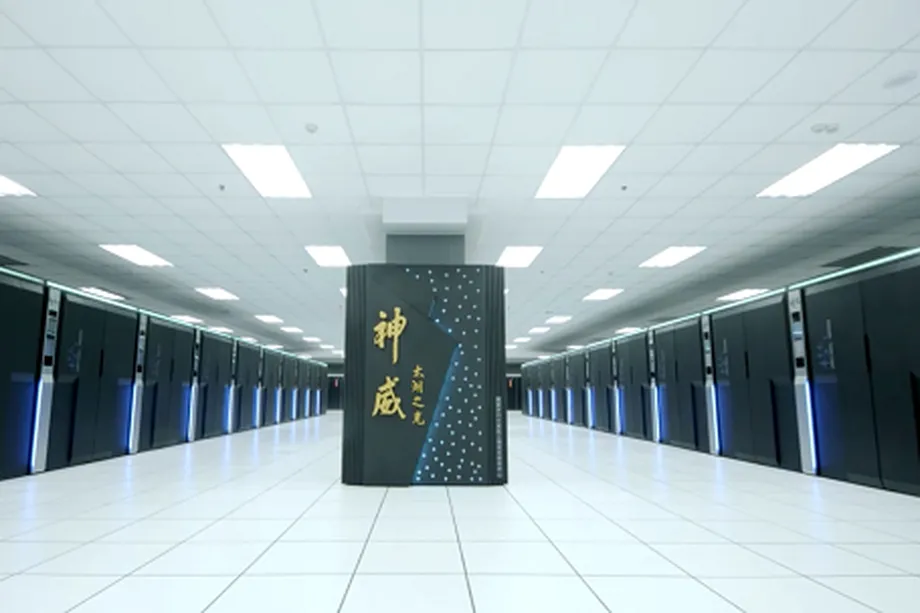beijingwalker
ELITE MEMBER

- Joined
- Nov 4, 2011
- Messages
- 65,191
- Reaction score
- -55
- Country
- Location
China aims to build world’s first exascale supercomputer prototype by end of 2017
Call it a super-supercomputer
by James Vincent@jjvincent Jan 19, 2017, 5:08am EST

Building supercomputers is a digital arms race, and China is moving quickly to solidify its lead. Last year, the country unveiled the world’s fastest supercomputer, the Sunway TaihuLight (above). This year, according to state news agency Xinhua, the government has set its sights on completing the world’s first prototype exascale computer; a machine capable of making a billion, billion calculations per second.
The prototype computer will be ready before the end of the year, said Zhang Ting, an engineer at the country’s National Supercomputer Center, but the finished product won’t be operational for several years more. “A complete computing system of the exascale supercomputer and its applications can only be expected in 2020,” said Zhang. “[It] will be 200 times more powerful than the country's first petaflop computer Tianhe-1, recognized as the world's fastest in 2010.”
It’s not clear exactly how this prototype system will relate to the finished exascale computer in terms of capability, but the news suggests China will at least be first to reach such a milestone. A number of nations — including Japan and the US — are planning to build exascale computers. The US Department of Energy says its current schedule is to have an exsacale system operational by 2023.
As of last June, China has more supercomputers in the world’s top 500 than the US — 167 compared to 165. (The US has more machines in the top 10 though; five to China’s two.) These systems are used for a number of tasks, ranging from life sciences to national defense. In 2015, the US actuallyblocked the export of Intel chips to China for its then-fastest supercomputer, fearing that the machine would be used for nuclear research. China instead built an even faster system (the Sunway TaihuLight) using its own processors instead.
http://www.theverge.com/2017/1/19/14321832/china-exascale-supercomputer-prototype-2017
Call it a super-supercomputer
by James Vincent@jjvincent Jan 19, 2017, 5:08am EST

Building supercomputers is a digital arms race, and China is moving quickly to solidify its lead. Last year, the country unveiled the world’s fastest supercomputer, the Sunway TaihuLight (above). This year, according to state news agency Xinhua, the government has set its sights on completing the world’s first prototype exascale computer; a machine capable of making a billion, billion calculations per second.
The prototype computer will be ready before the end of the year, said Zhang Ting, an engineer at the country’s National Supercomputer Center, but the finished product won’t be operational for several years more. “A complete computing system of the exascale supercomputer and its applications can only be expected in 2020,” said Zhang. “[It] will be 200 times more powerful than the country's first petaflop computer Tianhe-1, recognized as the world's fastest in 2010.”
It’s not clear exactly how this prototype system will relate to the finished exascale computer in terms of capability, but the news suggests China will at least be first to reach such a milestone. A number of nations — including Japan and the US — are planning to build exascale computers. The US Department of Energy says its current schedule is to have an exsacale system operational by 2023.
As of last June, China has more supercomputers in the world’s top 500 than the US — 167 compared to 165. (The US has more machines in the top 10 though; five to China’s two.) These systems are used for a number of tasks, ranging from life sciences to national defense. In 2015, the US actuallyblocked the export of Intel chips to China for its then-fastest supercomputer, fearing that the machine would be used for nuclear research. China instead built an even faster system (the Sunway TaihuLight) using its own processors instead.
http://www.theverge.com/2017/1/19/14321832/china-exascale-supercomputer-prototype-2017

